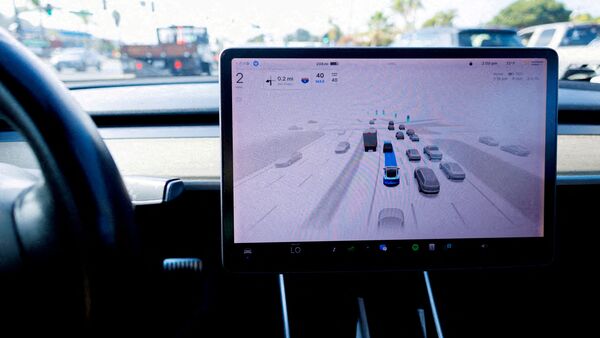Euro NCAP wants to ensure that drivers keep their eyes on the road. Even a two-second distraction can be catastrophic, and the new regulations are designed to penalize setups that encourage it.

The world of vehicle safety is about to get a little tougher. Euro NCAP, the independent European safety watchdog, is rolling out new testing protocols in 2026 that could shake up how car makers design and equip their vehicles. For years, a five-star rating from Euro NCAP was a coveted badge of honor, a tangible proof that a car was safe. But the upcoming changes signal a shift: it won’t just be about surviving a crash; it will be about preventing one in the first place, and protecting every occupant, in every scenario.


Also Read : Euro NCAP makes it harder for cars to pass safety crash test, reveals new rules
Focusing on the driver inside
One of the most significant shifts in Euro NCAP’s new rules is the spotlight on what happens inside the cabin. Modern cars are increasingly moving controls and information onto touchscreen consoles, often removing traditional instrument clusters behind the wheel. Euro NCAP wants to ensure that drivers keep their eyes on the road. Even a two-second distraction can be catastrophic, and the new regulations are designed to penalize setups that encourage it. Physical buttons where a driver expects them, tactile feedback, even with gloves on, are now more important than ever. For automakers, this is a challenge: a clean, minimalist interior is fashionable, but it can hurt safety scores if essential information is buried in a touchscreen.
Advanced monitoring and adaptive systems
Euro NCAP is also demanding more from driver monitoring systems. Cars will need to track eye movements, head position, and even signs of fatigue, alcohol, or substance impairment. TThe stakes are high, and these systems need to operate continuously and not as a warning after something has failed. Cabin child detection, seatbelt alarm, and adaptive airbags are also tested more rigorously, which implies that designers and tech integrators must recast how they design technology into products. Even small lapses in these features could cost valuable points and, by extension, consumer trust.
Also Read : 2025 Audi Q3 scores 5 stars at Euro NCAP
Impact on manufacturers and buyers
For carmakers, these changes are more than procedural, they are design challenges that may impact brand perception. A vehicle that looks futuristic and sleek but fails to meet the new monitoring or tactile requirements could miss out on the five-star rating that influences sales. For consumers, though, the benefits are clear. The 2026 protocols focus on preventing accidents, protecting occupants better, and ensuring first responders can act efficiently after a crash. It’s safety that feels alive, aware, and adaptive, much closer to real-world driving conditions than ever before.
Euro NCAP’s 2026 overhaul is a reminder that safety isn’t static. As technology evolves, so do the risks, and the standards are catching up. Cars will need to combine clever design with smart, proactive systems that prioritize driver attention, occupant protection, and post-crash intervention.
Get insights into Upcoming Cars In India, Electric Vehicles, Upcoming Bikes in India and cutting-edge technology transforming the automotive landscape.
First Published Date: 22 Oct 2025, 13:15 pm IST







